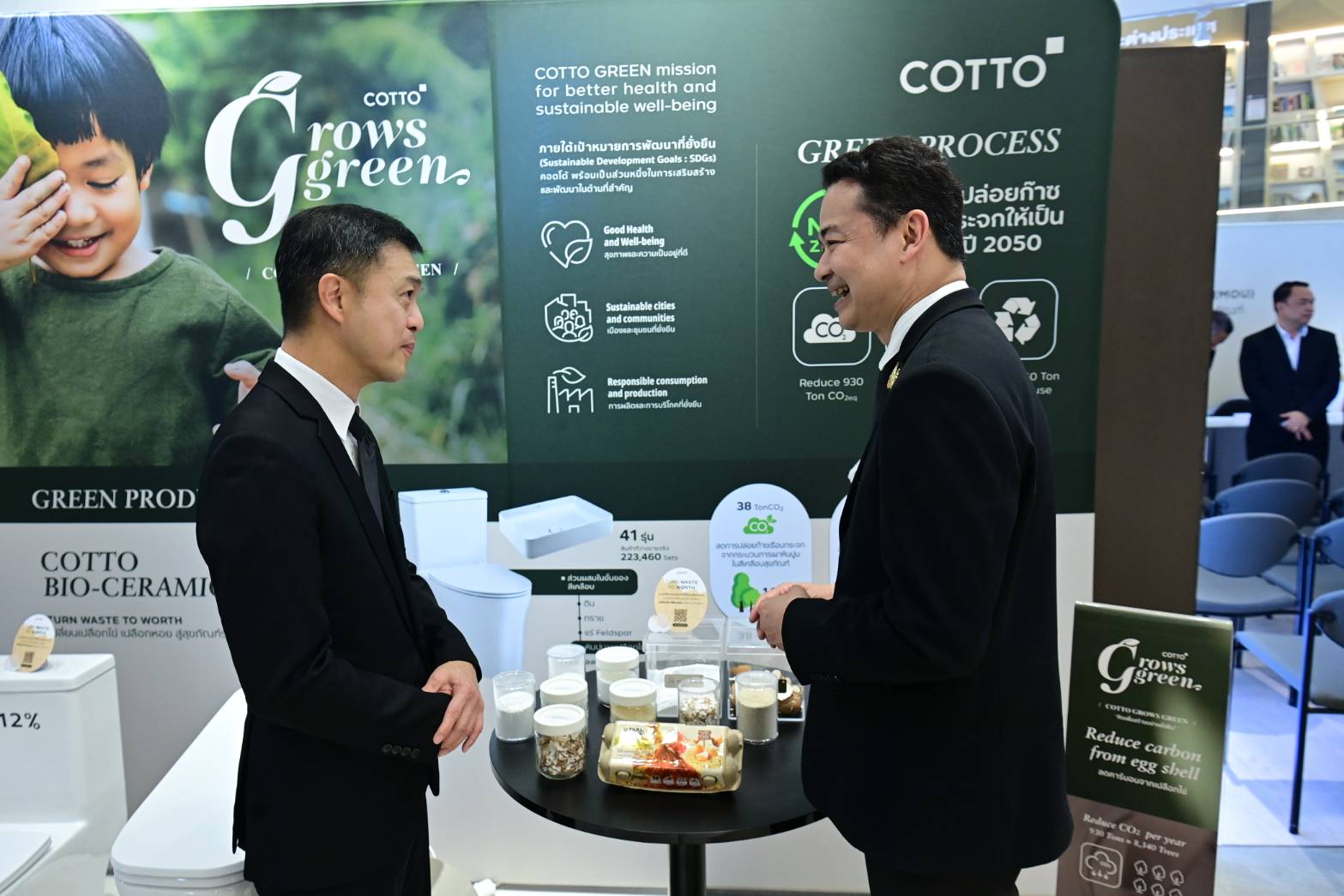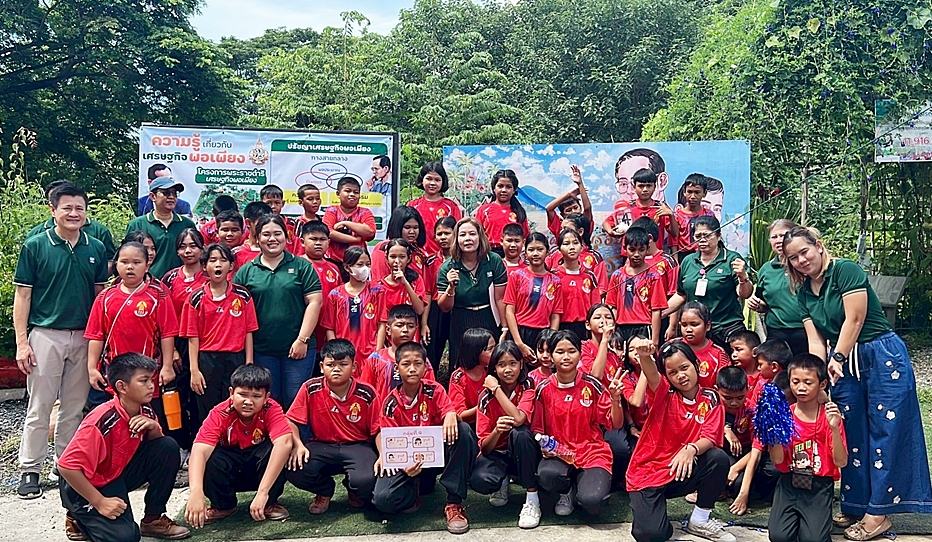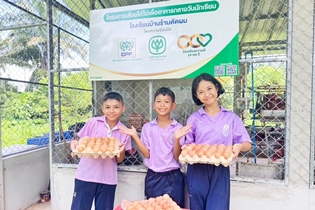

Amid intensifying environmental risks and global temperature, conservationists are crying for "responsibility" from the global community that includes business organizations, shopping complexes and small shops, calling them to unite their powers and create a "balanced and sustainable" planet. In focus is the consumption of exhaustible natural resources like fossil oil, ores and forests. As these resources will not be replenished for hundreds or thousands of years, we need to optimize resources and produce minimum waste.
Today's questions are how to replenish depleting natural resources and how to deal with waste, especially plastic waste. "Circular Economy" is the answer as it promotes maximum recycling and least waste. The concept is popular in manufacturing industries, whereby materials or raw materials in a product's lifecycle are recycled or turned to new products to minimize waste that will result in internal and external negative consequences.
Charoen Pokphand Foods PLC (CPF), as a leading integrated agribusiness and food company, realizes the need to balance natural resources and sustainable growth. Circular Economy is embraced in its operations throughout the value chain, practiced side by side with the 11 out of 17 United Nations Sustainable Development Goals (SDGs) as well as the United Nations Global Compact (UN Global Compact).
Mr. Wuthichai Sithipreedanant, CPF’s senior vice president for corporate social responsibility and sustainable development, said that the Circular Economy concept is being applied with the animal feed production, farming, ready-to-eat food production and packaging processes as well as its offices. An equal emphasis is placed on reusable resources. Used resources are reprocessed and reused for maximum efficiency; for example, innovative environmental-friendly feeds, the application of biogas and rooftop solar panels to generate renewable energy for farms, and the use of risk husk and saw dust as the energy source for food processing plants. At office buildings, among several means, plastic waste is sorted for the processing into new products. The approaches are part of CPF's 3 socially-responsible pillars towards sustainability which are “Food Security, Self-Sufficient Society and “Balance of Nature”.
Along environmental-friendly materials to tackle resource overuse, CPF recently announced its sustainable packaging policy, to assure the maximization of packaging which will lessen waste. Under this policy, CPF is determined to continually design and develop packaging, considering preferred benefits throughout the lifecycle. The packaging is expected to preserve food quality, protect products during transportation, and be properly tackled at the end of its lifecycle. CPF has also developed the packaging that helps prolong food life, to reduce food waste; for instance, fresh chicken bags is now made from single-layered plastic , instead of multi-layered plastic, and come with a smaller size. The paper boxes to deliver the product are hence smaller and 100% reusable. This approach reduces paper by 11%, plastic 43% and cost by 24%. At present, plastic constitutes 74% of CPF’s packaging materials; followed by paper, 24% ; and others, 2%.
Mr. Wuthichai added CPF also emphasizes the application of appropriate technology to boost efficiency, reduce waste and cut production cost; alter consumer behaviors through a campaign promoting waste sorting and awareness in maximizing natural resources; and manage waste more efficiently. Some of used resources or materials are reprocessed; for instance, the increments at swine farms are used to produce biogas, to power the farms with renewable energy.
"CPF is set to alleviate environmental impacts and protect the biodiversity of our 3 pillars - soil, water and forests, through an increase of inland and coastal forest areas and a decrease in energy and water in the production process. We want to ensure the least impacts on our business, society and the environment in both short and long terms," he said.
CPF also takes a role in promoting the awareness in environmental conservation among business partners and communities. Waste sorting and reuse can start at home, before the practices are replicated in communities. This will complete the Circular Economy cycle, from "Make" and "Use" to "Return", to ensure the best and most-efficient use of natural resources and the lowest demand for new resources.








_1752829776.jpg)
